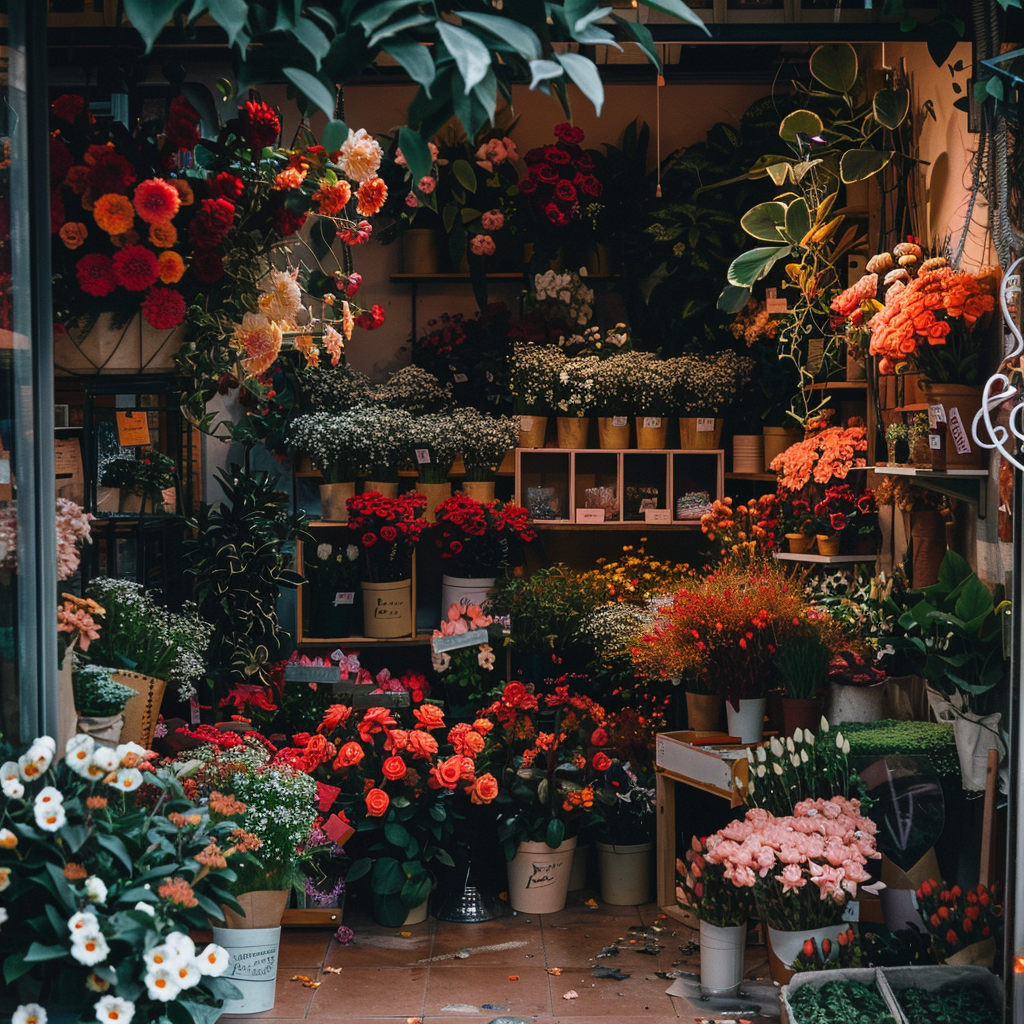In the modern floral industry, the integration of sustainable practices is not just a trend, but a strategic approach to growth and consumer satisfaction. As environmental awareness increases, businesses within the flower industry are adapting by embracing organic products and sustainable methods. This shift is driven by the recognition that sustainability can significantly enhance brand value and appeal to a growing demographic of eco-conscious consumers. The importance of these sustainable practices extends beyond environmental benefits, influencing customer loyalty and opening new markets.
Trends in Sustainability within the Flower Industry
In the ever-evolving landscape of the flower industry, the emergence of Trends in Sustainability stands as a beacon of hope and progress—a testament to the collective efforts of growers, florists, and consumers alike to cultivate a greener, more ethical future. As awareness of environmental issues continues to grow, so too does the demand for flowers grown and sourced through sustainable practices, driving a transformative shift in the way flowers are cultivated, marketed, and enjoyed.
At the heart of these trends lies a fundamental commitment to organic principles and eco-conscious practices. More and more floral businesses are embracing sustainable growing methods, eschewing chemical pesticides and synthetic fertilizers in favor of natural alternatives that promote soil health and biodiversity. By cultivating flowers in harmony with nature, these growers not only produce blooms of unparalleled beauty and quality but also safeguard the delicate ecosystems upon which their livelihoods depend.
Leading the charge in this sustainable revolution are innovative companies such as The Bouqs Co. and Farmgirl Flowers, whose commitment to ethical sourcing and eco-friendly practices has earned them widespread acclaim and consumer loyalty. By prioritizing organic flowers and implementing eco-conscious packaging and optimized supply chains, these trailblazing businesses have not only captured market share but also set a new standard of excellence for the industry as a whole. Their success serves as a powerful reminder that sustainability and profitability are not mutually exclusive but rather complementary goals that can drive positive change and innovation.
Benefits of Integrating Organic Products into Business
Embracing the integration of Organic Products marks a significant stride forward for floral businesses, ushering in a host of benefits that extend far beyond mere profit margins. At its core, this shift represents a commitment to environmental stewardship, one that resonates with consumers increasingly mindful of the ecological footprint of their purchases. By eschewing harmful chemicals and embracing natural growing practices, floral businesses not only reduce their impact on the planet but also contribute to the preservation of delicate ecosystems and the promotion of biodiversity.
Beyond its environmental implications, the integration of organic products also holds considerable economic promise for floral businesses. By tapping into the burgeoning market for sustainable goods, these businesses can carve out a niche within the premium segment, attracting consumers willing to pay a premium for products that align with their values. This not only diversifies revenue streams but also enhances profit margins, offering a tangible incentive for businesses to invest in organic practices and products.
Moreover, the adoption of organic products represents a strategic opportunity for floral businesses to bolster their brand image and fulfill their corporate social responsibility objectives. In an era where consumers are increasingly scrutinizing the ethical and environmental practices of the companies they support, businesses that demonstrate a commitment to sustainability stand to gain a competitive edge. By aligning with consumer values and addressing concerns about environmental conservation, these businesses can forge deeper connections with their customer base, fostering loyalty and trust that translates into long-term success.
Sustainable Development Strategies in the Flower Business
In the dynamic realm of the flower business, Sustainable Development Strategies stand as the cornerstone of progress, offering a roadmap towards a greener, more responsible future. These strategies must be holistic, encompassing every facet of the industry, from the source of the flowers to their presentation to customers. At the heart of this approach lies the concept of localization, wherein floral businesses prioritize sourcing from nearby organic farms. By reducing the distance traveled from farm to shop, these businesses slash carbon emissions associated with transportation while also supporting local economies and fostering community resilience.
- Moreover, a commitment to sustainable development extends beyond mere product sourcing—it permeates every stage of production. This entails embracing fair-trade practices that ensure equitable compensation and working conditions for laborers throughout the supply chain. By championing social justice alongside environmental stewardship, floral businesses not only uphold ethical standards but also cultivate a reputation for integrity and compassion. This, in turn, resonates with conscientious consumers who prioritize ethical consumption and seek out businesses aligned with their values.
- In the realm of marketing, sustainable development strategies take on a crucial role in shaping consumer perceptions and behaviors. Leveraging certifications such as Rainforest Alliance or Fair Trade, floral businesses can communicate their commitment to sustainability effectively, building trust and loyalty among environmentally conscious consumers. Additionally, innovative marketing campaigns that highlight the eco-friendly attributes of organic products—such as their positive impact on biodiversity and soil health—can further amplify the message of sustainability and attract a broader audience.
Developing a Sustainable Floral Supply Chain
In the intricate tapestry of the floral industry, Developing a Sustainable Floral Supply Chain emerges as a linchpin for fostering environmental stewardship and ethical integrity. At its core lies the careful curation of suppliers—those guardians of nature whose practices shape the very essence of floral products. Selecting suppliers who embrace organic farming practices and hold robust sustainability certifications is paramount. These conscientious partners serve as beacons of sustainability, ensuring that each bloom that graces the shelves is a testament to environmental responsibility.
Yet, the journey towards a sustainable supply chain extends far beyond mere supplier selection—it requires a harmonious symphony of collaboration and diligence at every stage of the process. Floral businesses must forge strong bonds with their suppliers, engaging in ongoing dialogue to uphold high environmental standards throughout the supply chain’s labyrinthine corridors. Regular audits of supplier practices serve as a compass, guiding the way towards greater sustainability and accountability. Through these audits, businesses can identify areas for improvement and work hand in hand with suppliers to implement eco-friendly solutions.
Moreover, the quest for a sustainable floral supply chain demands a keen embrace of technological innovation. In an era where information is power, leveraging technology to track the environmental impact of logistics and transportation methods is essential. From carbon footprint assessments to real-time tracking of shipments, technology offers a window into the ecological footprint of each floral journey. By harnessing the power of data, floral businesses can identify inefficiencies, optimize routes, and minimize environmental harm, thereby weaving sustainability into the very fabric of their operations.
Also, we advise you to read our other article, where we talked about bouquets for every season.
FAQ
Recent trends include a shift towards organic products and sustainable growing practices, such as eliminating chemical pesticides and using natural composts.
Floral businesses are adopting eco-friendly and ethical sourcing methods, prioritizing organic flowers, implementing eco-conscious packaging, and optimizing supply chains to minimize their carbon footprint.
Companies like The Bouqs Co. and Farmgirl Flowers have gained market share by promoting their eco-friendly and ethical sourcing methods, resonating well with consumers who prioritize sustainability.

